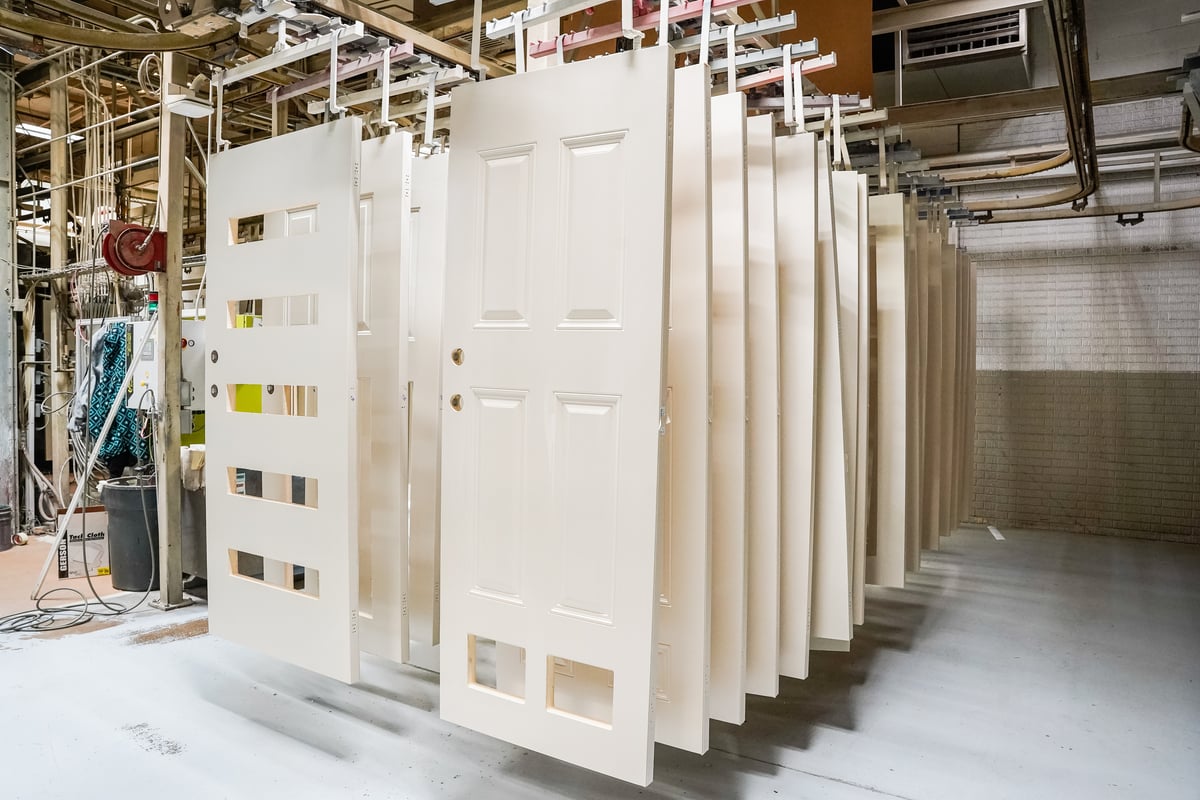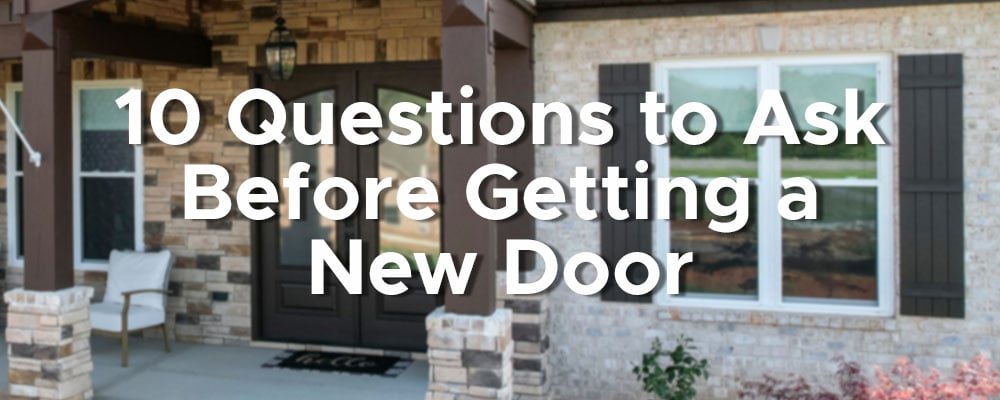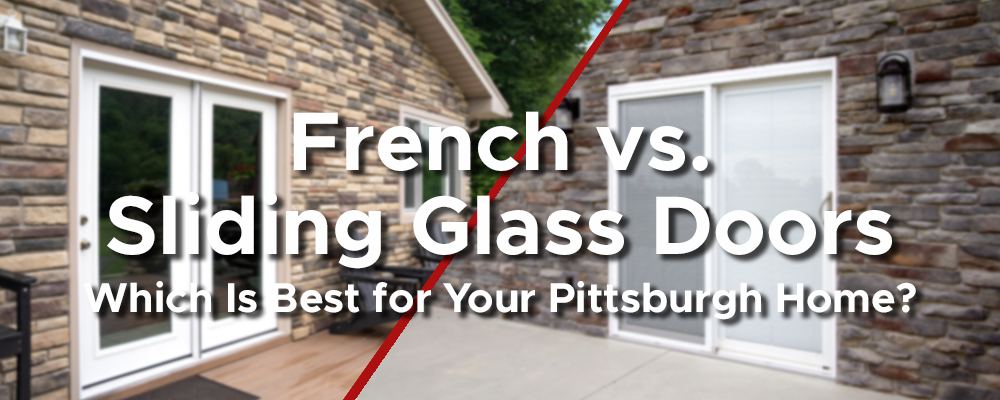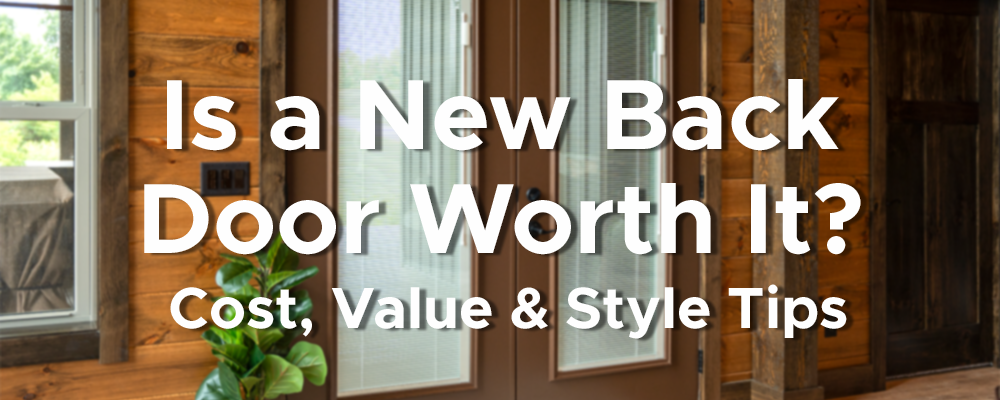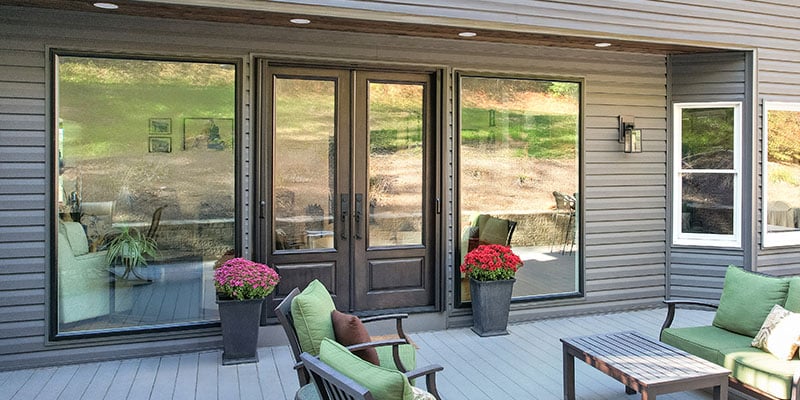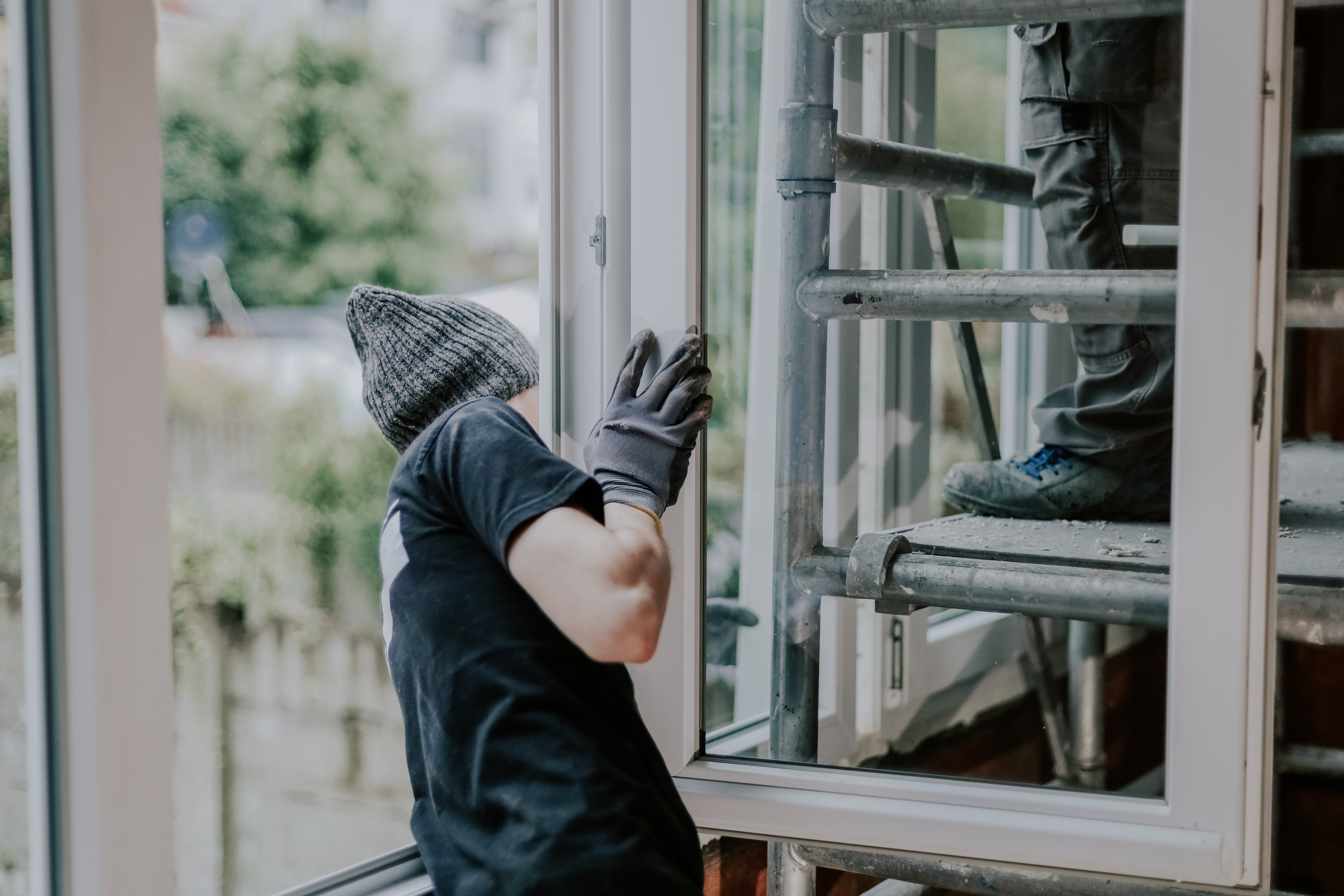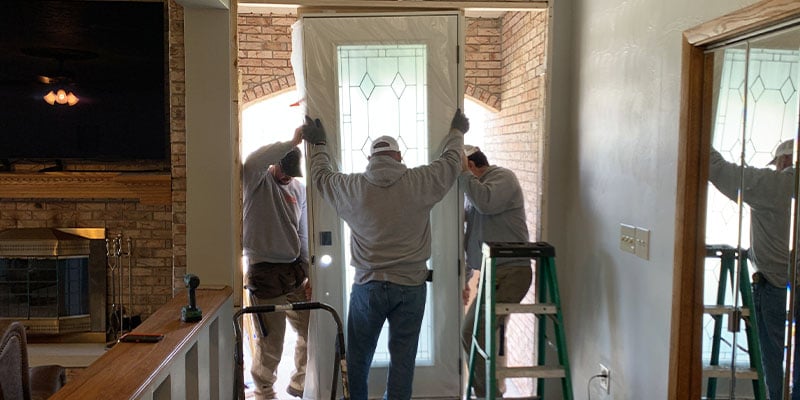Hidden Fees and Costs to Watch for in a Window or Door Replacement Quote (Pittsburgh Homeowners’ Guide)
October 20th, 2025
10 min read
By Chris Saxton

Why did your $12K window quote suddenly turn into $17K?
What hidden costs are buried in that “great deal” you just got from a contractor?
If you’re a Pittsburgh homeowner shopping for replacement windows or doors, chances are you’ve come across quotes that look wildly different, even for the same size and style. That’s not just confusing; it can be costly.
At Energy Swing Windows, we’ve seen hundreds of projects where homeowners were caught off guard by vague line items, missing services, and surprise fees that weren’t listed until the install was underway.
In this guide, we’ll break down the hidden fees that most commonly sneak into window and door quotes, how to spot red flags, and what a fully transparent estimate should look like so you can protect your budget before signing anything.
Table of Contents
5 Hidden Fees That Can Inflate Your Window or Door Replacement Quote
Let’s be real, no one enjoys reading quotes with 12 lines of fine print and 0 lines of explanation. But if you’ve ever looked at a surprisingly low window or door estimate and thought, “This feels too good to be true,” you're probably right.
Even well-meaning companies structure their quotes differently, and the details they leave out (intentionally or not) can hit your wallet hard once the work begins and even years after. Here are the most common “gotcha” fees that sneak into final invoices, especially around Pittsburgh:

- Removal and disposal of old windows and doors
You’d think getting rid of your old stuff would be included. But with some quotes, it’s extra as in, you pay extra for the crew to carry it to the truck. - Hardware or handle upgrades beyond the standard package
Standard handles might be what they show you… but not what you actually want. Sometimes the quote covers only the base-level option, or none at all!
A Cranberry couple visited Energy Swing’s Design Center and told us that a quote from a national brand didn’t even include the hardware. Instead, they told the homeowners to go to Lowe’s and buy it themselves. This is all so they could get a better deal on the contract and win the project. - Interior trim or casing work
This is a big one in Pittsburgh. If your home has custom woodwork or thick plaster walls, finishing the job professionally often requires trim work that isn’t in the original quote. - Exterior wrapping or capping for brick and siding exteriors
If your home has brick, stone, or older aluminum siding, make sure exterior capping and flashing are included. Otherwise, you’ll end up paying more to weatherproof after the install is done. - Caulking, insulation, and weatherproofing around frames.
These might be listed vaguely as “installation materials” but unless they’re clearly called out, you might get a basic quality and fit without the air sealing that keeps Pittsburgh winters from leaking into your living room. There’s a big difference in performance between caulking that costs $1.00 a tube and one that is $10.00 a tube.
Pro tip: Ask for an itemized quote that lists every step of the installation, from tear-out to trim, from haul-away to hardware.
What Hidden Fees We Spot Most Often in Pittsburgh Homes
Every home is different but after thousands of installs across the Pittsburgh region, we’ve seen some patterns. Here are the most common surprise fees that catch homeowners off guard by neighborhood or home type:
|
Neighborhood Type |
Most Common Surprise Fee |
|
Pre-1940 Brick Homes (Mt. Lebanon, Edgewood, Highland Park) |
Custom capping & trim work. These old homes often have thick plaster walls, original wood trim, and unpredictable framing. Quotes that don’t account for capping or finish carpentry can underestimate the job by thousands or more. |
|
Suburban Vinyl Homes (Cranberry, Monroeville, Murrysville) |
Upgraded handles & hardware. Newer homes often come with builder-grade windows and doors and that’s what many quotes default to. But if you want better hardware (think style or security), the quote suddenly jumps. |
|
City Row Homes (Lawrenceville, Bloomfield, South Side) |
Tight access = labor surcharges. When installers have to work from alleyways, climb ladders between buildings, or haul materials through tight stairwells, you may see added labor fees that weren’t on the original estimate. |
|
Older Hillside or Sloped-Lot Homes (Dormont, Mt. Washington, Reserve Township) |
Framing/masonry reinforcement. Houses built into Pittsburgh’s many hills often have shifting foundations or odd framing around doors and windows. That means extra time, material, and occasionally... surprise costs. |
Before you sign that contract, take a peek behind the scenes of the window installation process.
Does Your Quote Include Full Installation or Just the Product?
 In Pittsburgh, any reputable window or door company doing an in-home consultation should give you a fully installed price not just a parts list.
In Pittsburgh, any reputable window or door company doing an in-home consultation should give you a fully installed price not just a parts list.
Still, you’ve got to read between the lines, because even quotes that say “installation included” might not mean what you think. One company’s “standard install” could include:
-
Exterior capping
-
Interior trim
-
Cleanup & disposal
Another’s might not include any of those and you won’t know until after you’ve signed and give you an additional bill later.
If the price seems unusually low, that’s a sign it might be “product-only” pricing, meaning you’re seeing the cost of the window or door itself, not the labor or materials to install it.
This setup is more common with big-box retailers, where you buy the product first and then pay separately for installation through a subcontractor.
Smart Question to Ask Before Signing:
“Can you walk me through exactly what your installation includes and who the installation will be done by, line by line?”
Make sure their answer covers:
-
Labor and time
-
Subcontractors or employee installers
-
Materials (caulking, insulation, trim)
-
Exterior finishing
-
Haul-away and cleanup
If they skip over anything, hesitate, or use vague terms like “standard install,” that’s a red flag. You deserve a quote that leaves nothing to guesswork, especially for a project this big.

Surprise Warranty and Service Fees Homeowners Miss
Let’s talk about one of the biggest gotchas in the window and door world: warranties that sound amazing… but barely cover anything.
You’ve probably seen phrases like:
“Lifetime warranty included!”
“Guaranteed for life!”
“Full protection!”
But here’s the thing: most companies don’t show you the actual warranty document until after you sign. And by then? It’s too late to notice the fine print and realize:
-
The “lifetime” only covers certain parts of the product.
-
Most window and door warranties cover installation defects for only a short amount of time, if any at all.
-
Some warranties will cover the parts cost but still charge a “trip fee” or “service charge” to have someone come out.
-
If you sell your home, the warranty is no longer valid (unless you pay to transfer it).
Here’s What You Should Always Ask Before Signing:
-
Can I see both the manufacturer and installation warranties, in writing?
-
What’s covered and for how long?
-
Who handles service if something fails; you or the manufacturer?
-
Are there activation fees, transfer fees, or service call charges?
Most importantly, ask before you commit. At Energy Swing Windows, we walk through every warranty detail during your consultation. No sugarcoating, no hiding. Because confidence shouldn’t come with conditions.
Here’s how to tell if your window warranty actually protects you (or just sounds good on paper).
Will Financing Add Hidden Costs to Your Window or Door Project?
Replacing windows or doors isn’t cheap. And for many homeowners, writing a $10K+ check isn’t realistic. That's where financing can make a big project more manageable, especially if it’s done right.
But here’s where it gets tricky:
Some companies promote “easy financing” only to sneak in high interest rates, hidden origination fees, or early payoff penalties that cost you thousands more in the long run.
Here’s what to watch for in a financing offer:
-
Interest-based plans with high long-term rates
-
Origination or “processing” fees that quietly inflate your loan
-
Prepayment penalties if you try to pay it off early
-
“Same-as-cash” promos that turn into high-interest traps if you miss the deadline by even a day
That said, if you’re replacing leaky, inefficient windows that are driving up your energy bills, financing the project now before another Pittsburgh winter hits, might actually save you money over time. But only if you know what you're getting into.
Before you sign ask your contractor:
-
What’s the real cost of this loan if I pay over time?
-
Are there any fees? Up front, or if I pay early?
-
What’s the interest rate after the promo period ends?
Learn how local homeowners are making window and door projects more affordable without cutting corners through financing options.
What Happens If There’s a Problem Behind the Wall? (And How to Make Sure You Don’t Get Blindsided)
The thing about window and door replacement is you don’t know what’s behind your walls until you take the old ones out.
Common discoveries in Pittsburgh homes include:
-
Rotted sills hiding under 60-year-old wood trim
-
Water damage behind brick facades
-
Framing that looks like it was done during Prohibition (because it was)

Finding issues once installation starts isn’t the problem, it’s how the company handles it that can make or break the experience.
Some contractors will “discover” a problem mid-install and just tack on extra costs without warning, documentation, and definitely without your permission. That’s a red flag.
Reputable companies will handle this through a formal change order process where you and the contractor must sign off on any added cost before proceeding.
Before you sign anything, ask:
“If there’s hidden damage, how will I be notified and what’s the process for approving added work?”
If the answer is vague or verbal-only? That’s your sign to walk.
Is Cleanup Included in Your Quote or Left Out?
When the work is done, you just want to enjoy your new windows or doors, not spend your weekend cleaning up after the crew.
Not all companies include cleanup in the quote. And even when they do, “cleanup” might mean very different things depending on who’s saying it.
Some installers only remove the big stuff (old windows, frames, packaging) but leave dust, caulk shavings, and trim debris scattered throughout your living room.

What to ask before you sign:
“Does this quote include full cleanup and disposal? What exactly does that cover?”
- Haul-away of old windows, doors, and packaging
- Disposal fees or dumpster use
- Vacuuming and final site cleaning around both the inside and outside of the work area
Those small details make a big difference, especially if you don’t want to spend your weekend cleaning up after your “finished” project.
Red Flags Pittsburgh Homeowners Should Watch for in a Window or Door Quote
Most hidden fees don’t show up in bold print, they’re buried in vague wording, blank line items, or “we’ll see” language that sounds innocent until it costs you thousands.
We’ve reviewed hundreds of quotes across the Pittsburgh area, and these are the most common red flags we see, especially from companies trying to win the job on price (intentionally underquote) and make it up later through up-selling.
|
Red Flag |
Why It’s a Problem |
|
Vague phrases like “as needed” or “TBD” |
Leaves room for extra charges later |
|
Line items with no listed cost |
Can be added later without warning |
|
Missing warranty documentation |
You can’t verify coverage before buying |
|
Broad exclusions (like “bad wood”) |
May include expensive structural repairs |
|
High cancellation or reschedule fees |
Can penalize you for weather delays |
|
Uneducated or pushy consultants |
May misquote the project entirely |
Want to know what pushy sales tactics look like in the real world? Our Pittsburgh homeowners’ guide to high-pressure home improvement sales breaks them down step by step.
How to Avoid Hidden Fees in Window & Door Projects
At this point, you’re probably thinking “great, now I have 15 new things to worry about.”
Don’t stress, protecting yourself from hidden fees isn’t about knowing everything a contractor might do wrong. It’s about knowing what the right contractor should always do right.
Here’s how to keep control of your project, your quote, and your peace of mind:
-
Get a fully written proposal that clearly lists what’s included and excluded, not just a number. You want to see what each window or door costs, how installation is broken down, and what services are (and aren’t) included.
-
Compare multiple quotes side by side and not just on price. A cheaper quote might leave out cleanup, trim, or warranty coverage. Make sure you're comparing apples to apples, especially with older Pittsburgh homes that often need extra work.
-
Do your homework on the company. Look at third-party reviews and see if they have any consumer-based awards. Ask about how long they’ve been in business, what homes they’ve worked on in your area, and how they handle follow-up service.
-
Confirm the quote is all-inclusive (product, installation, cleanup, and warranty). Ask for this in writing. No assumptions. No “standard” phrases. Just a clear scope of work from demo to disposal.
You’re not just buying windows or doors, you’re buying the expertise that makes them perform properly for decades. If a company can’t be transparent in the quote, why trust them with your home?
What Should a Transparent Quote Look Like?
So what does a real, honest quote look like? Here’s what we show our customers and what you should demand from anyone you’re considering.
A transparent quote doesn’t just give you a number, it gives you confidence. The more detail you see upfront, the fewer surprises you’ll face once work begins.
Here’s what a complete, trustworthy window or door replacement quote should include:
|
Category |
What to Look For |
Why It Matters |
|
Product (Line-by-Line) |
Each window or door type listed individually, with its size, style, and installation method clearly outlined. |
Prevents confusion about what’s included, especially if different areas of your home need different styles or materials. |
|
Installation |
Who is doing the installation? Trained company employees or an independent subcontractor. |
An independent subcontractor is not always as dedicated to delivering the right job as a company employee is. |
|
Warranty Terms |
Both manufacturer and installation warranties included in writing, with coverage timelines and limitations clearly explained. |
Verifies who’s responsible if a product fails or needs service, not all warranties cover labor. |
|
Finishing Details |
Clear explanation of how trim, insulation, capping, and caulking will be handled. |
These are often the first items to get “left out” of cheaper quotes, even though they affect long-term performance. |
|
Cleanup and Disposal |
Confirmation that debris, old materials, and packaging will be removed and that the space will be left clean. |
Saves you from post-project messes or unexpected disposal fees. |
|
Change Order Policy |
Written statement explaining how costs are handled if issues arise during installation (like rot, damage, or measurement errors). |
Ensures that any new charges must be approved in writing before work continues. |
|
Payment and Financing Terms |
Payment schedule, financing details, and any potential fees for early payoff or changes. |
Keeps financing transparent and helps avoid hidden interest or processing fees. |
Bonus tip: Ask your consultant to walk through the quote line by line with you. If they hesitate, skip over sections, or use vague terms like “standard installation,” that’s a sign to dig deeper.
Final Takeaway: Don’t Get Caught Off Guard by Hidden Fees
At the end of the day, we’ve all felt that sinking feeling, the “wait, why is this cost showing up now?” moment. And in Pittsburgh, with older homes and unique installs, those hidden fees can hit harder than most.
Now that you know exactly what to look for, from warranty traps to vague line items, you can take control of your window or door project with confidence.
Your next step? Schedule a free consultation with Energy Swing Windows. We’ll walk through your quote line by line and make sure there are no surprises ever.
FAQ for Hidden Fees and Costs in Replacement Window and Door Quotes
1. Why do quotes vary so much between companies?
Because not all quotes include the same scope. Some show only the product price, while others include installation, cleanup, permits, and warranty. Always ask for an itemized quote.
2. Is cleanup and disposal usually included?
Not always. Some companies remove debris but leave packaging or dust behind. Make sure your quote includes vacuuming, haul-away, and final cleaning.
3. What happens if damage is discovered during installation?
A reputable company will pause the project and issue a written change order before proceeding. Never accept vague or verbal cost adjustments.
4. Are permit fees required in all Pittsburgh-area homes?
Permit needs vary by municipality. Allegheny and Westmoreland counties have different requirements, especially for structural changes. Ask if your quote includes all necessary permits.
5. Should I be concerned about “lifetime warranties”?
Yes. Many “lifetime” warranties only cover materials — not labor — and may have activation or service fees. Request the full warranty document up front.
6. Can I finance my window or door replacement without hidden costs?
Yes, but ask about interest rates, origination fees, and prepayment penalties. Some financing plans can cost more than you expect over time.
7. Do Pittsburgh’s older homes require special installation?
Often, yes. Homes built before 1950 — common in Mt. Lebanon, Squirrel Hill, and similar neighborhoods — may need custom trim work, framing adjustments, or masonry support.
Chris Saxton is a Client Consultant at Energy Swing Windows and has been with the company since 2001. He is passionate about finding the best solutions for every homeowners project while educating them along the way.










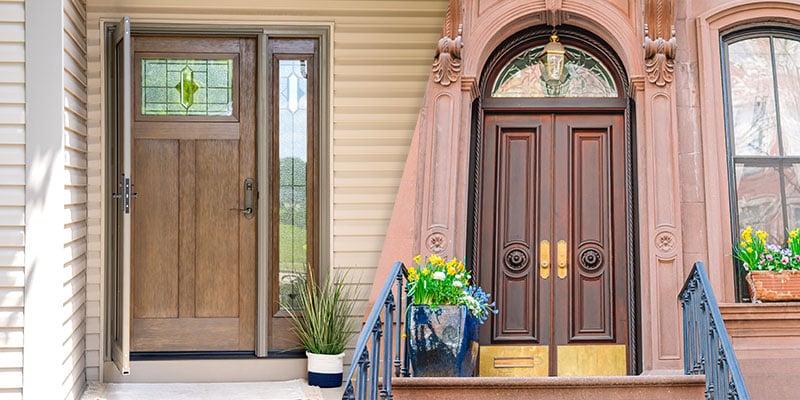
.jpg?width=1200&height=550&name=Copy%20of%20Copy%20of%20ESW%20Collage%20Template%20(3).jpg)
